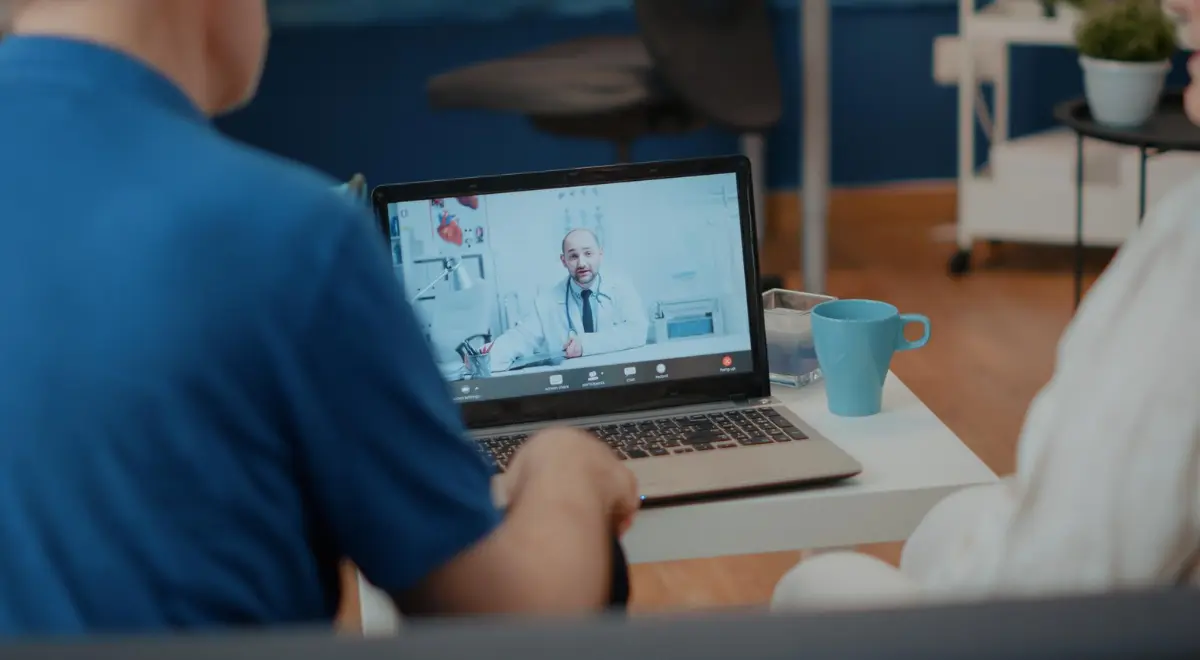Top 12 Frequently Asked Questions on Chronic Care Management (CCM) Billing & Reimbursement

Want to know about Chronic Care Management (CCM) and how it helps patients and providers? Do you have questions about CCM billing and reimbursement process? This blog provides answers to some of the common concerns regarding CCM reimbursement.
We have answered a few frequently asked questions on CCM services that improve the quality of care and health outcomes for people with chronic diseases while lowering overall expenditures.
Table of Contents
ToggleWhat is Chronic Care Management?
According to the Centers for Medicare and Medicaid Services (CMS), CCM services assist Medicare patients with two or more chronic conditions in receiving better care. Focused on care coordination, CCM services are provided outside of in-person visits to help patients manage their chronic diseases more effectively.
Who qualifies for CCM services?
Medicare participants with two or more chronic diseases expected to last at least a year are eligible for CCM services. Medicare defines a chronic condition as a diagnosis expected to last at least 12 months, or until the death of the patient, and place the patient at significant risk of death, acute exacerbation or functional decline.
What services are included in CCM?
Non-face-to-face care services offered by CCM include comprehensive care planning, medication management, care transition coordination, and contact with other health care professionals involved in the patient’s care.
How CCM is reimbursed using CPT codes?
Under the Physician Fee Schedule, Medicare will reimburse for chronic care management using CCM CPT billing codes, depending on the patient’s needs and the amount of time spent on care coordination.
- CPT Code 99490
CCM services covering at least 20 minutes of clinical staff time under the supervision of a physician or qualified healthcare professional, per calendar month.
- CPT Code 99439
Add-on code for CPT code 99490; each extra 20 minutes of clinical staff time under the supervision of a physician or other qualified healthcare professional, every calendar month.
- CPT Code 99491
CCM services performed directly by a physician or other qualified health care professional, as opposed to other clinical staff under their supervision, which is covered by 9949o. CPT code 99491 requires at least 30 minutes of physician or other qualified health care professional time each calendar month and must be included and documents in the patient’s care plan.
- CPT Code 99437
Add-on code for CPT Code 99491; each additional 30 minutes by a physician or other qualified health care provider, per calendar month.
- CPT Code 99487
Complex CCM, the initial 60 minutes of clinical staff time under the supervision of a physician or other qualified health care provider each calendar month.
- CPT Code 99489
Add-on code for CPT code 99487; each additional 30 minutes of clinical staff time under the supervision of a physician or other qualified health care professional, per calendar month.
Is there any paperwork required for CCM reimbursement?
Yes, clinicians must record the time spent on care coordination activities, as well as the patient’s consent to participate in CCM services, along with the prescribed comprehensive care plan. All documentation done should be comprehensive and accurate, in accordance with the Medicare guidelines.
How often can CCM services be provided to a patient?
CCM services are available to eligible patients once each calendar month. To ensure adequate and timely care coordination, providers should review the patient’s eligibility and need for CCM on a frequent basis.
Do billing practitioners need to see their patients’ in-person?
Yes, for new patients or patients not seen within a year prior to the commencement of CCM services. These services must be provided by the billing practitioner during a comprehensive evaluation and management visit (E/M visit), annual wellness visit (AWV), or initial preventive physical exam (IPPE).
What must be included in the CCM care plan?
The following are the usual care plan components, according to the Centers for Medicare and Medicaid Services (CMS) that usually includes the CCM care plan:
- Illness and symptoms list
- Expected outcome and prognosis
- Measurable treatment objectives
- Cognitive and functional assessment
- Symptom management
- Planned interventions
- Health education, including health literacy
- Community and social support services
- Medication management
- Environmental evaluation
- Caregiver assessment
- Interaction and coordination with practitioners and healthcare providers
- Risk classification
Can CCM be billed in conjunction with RPM?
Yes, a provider may bill for both CCM and RPM services. CMS acknowledges that CCM services are complementary to RPM and other care management options. However, providers’ time spent providing these services must be counted separately. When billing CCM CPT Code 99490 and RPM CPT Code 99457 together, the provider must perform at least 40 minutes of services, comprising for 20 minutes of CCM and 20 minutes of RPM.
Can non-physician practitioners provide CCM services?
Yes, non-physician practitioners such as nurse practitioners, physician assistants, and clinical nurse specialists can provide CCM services when supervised by a physician.
What exactly is the definition of “clinical staff” for CCM reimbursement?
The American Academy of Family Physicians (AAFP) defines a clinical staff member as “a person who works under the supervision of a physician or other qualified healthcare professional and is allowed by the law and regulation to perform or assist in the performance of a specified professional care but does not individually report it.”
Can all CCM services involve clinical staff?
No. The clinical staff must maintain some level of involvement with CCM. The CCM service codes for reporting clinical staff time are valued to include some level of clinical staff involvement, such as overseeing, managing, collaborating, and reassessing by the billing practitioner. Complex CCM CPT codes comprises moderate to high complexity medical decision-making by the billing practitioner, which cannot be delegated to other provider. The CCM service codes CPT codes 99491 and 99437 for reporting services provided directly by the billing practitioner cannot be assigned or subcontracted to clinical staff.
So, these were the answers to some of the frequently asked questions about chronic care management billing and reimbursement you should be aware of.
HealthArc’s HIPAA compliant CCM software provides billing reports capability by allowing healthcare providers to record their care times using an automatic time tracker, make care plans (accounting for SDOH- social determinants of health) available to the patient 24/7, re-fill prescriptions, review diagnostics and make referrals.
Book a demo now to find out how our digital health platform can help your healthcare organization achieve its clinical goals and maximize reimbursements.
Most recent blogs
Categories
- Advanced Primary Care Management
- Behavioral Health Integration
- Cellular Remote Patient Monitoring
- Chronic Care Management
- Chronic Care Management Billing
- Chronic Care Management CPT Codes
- Chronic Care Management Program
- Chronic Care Management Software
- Digital Health Platform
- Principal Care Management
- Principal Care Management CPT Codes
- Remote Care Programs
- Remote Monitoring Devices
- Remote Patient Care
- Remote Patient Monitoring
- Remote Patient Monitoring Billing
- Remote Patient Monitoring CPT Codes
- Remote Patient Monitoring Devices
- Remote Patient Software
- Remote Therapeutic Monitoring
- Remote Therapeutic Monitoring Billing
- Remote Therapeutic Monitoring CPT Codes
- Telemedicine & RPM
- Transitional Care Management
- Transitional Care Management Billing
- Transitional Care Management CPT Codes
Related Posts
- December 5, 2024 | Read Time: 7 mins
How Remote Patient Monitoring Improves Chronic Care Management?
- July 23, 2024 | Read Time: 8 mins
HealthArc Vs. Prevounce: Which One To Choose?
- July 9, 2024 | Read Time: 3 mins






